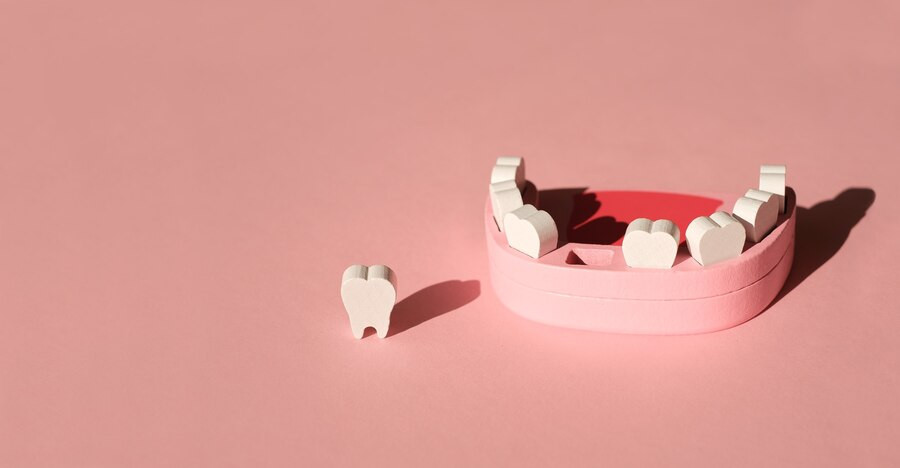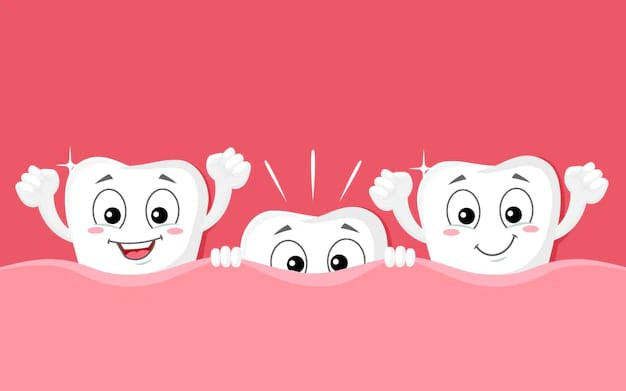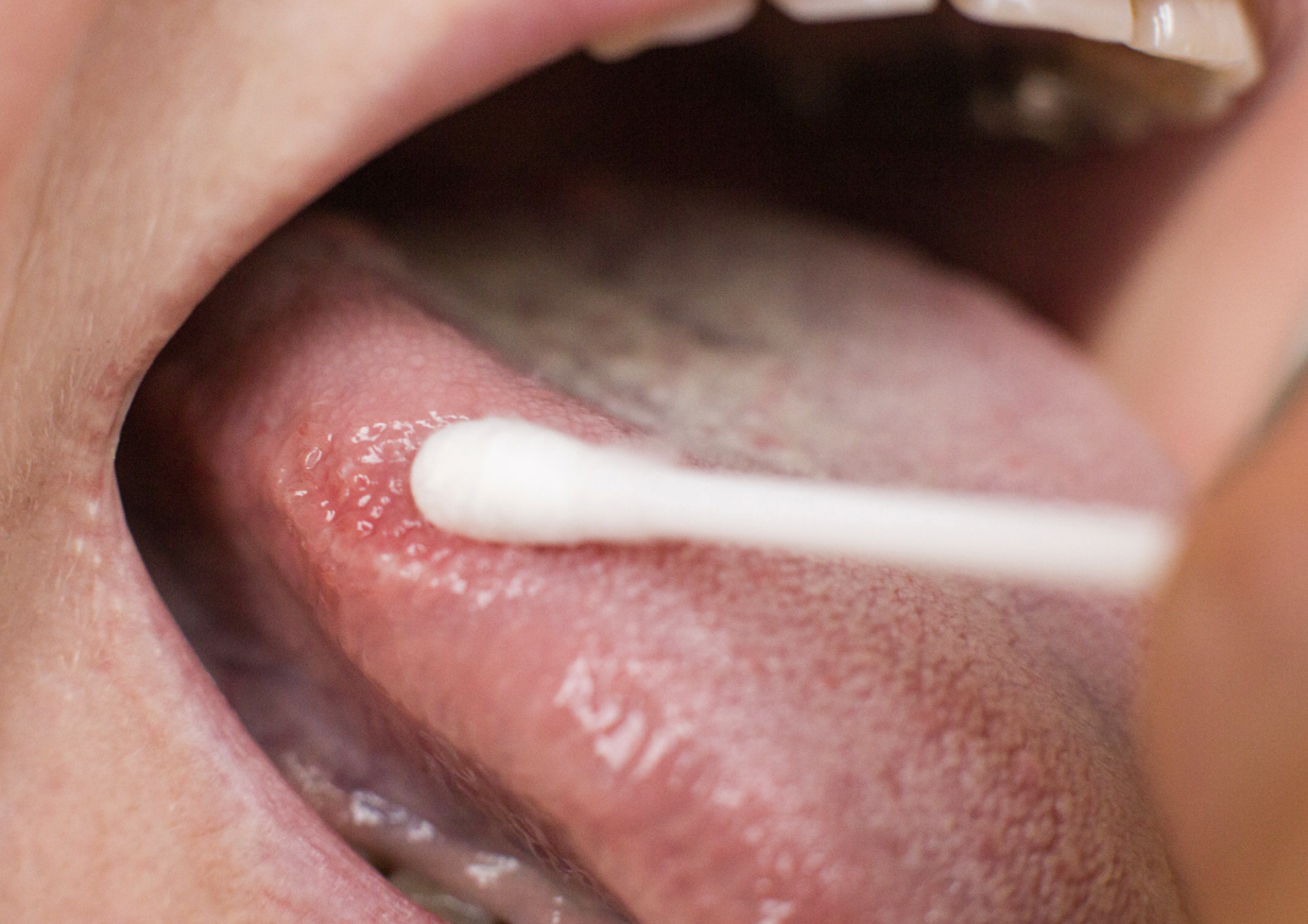Definition
Tooth sensitivity is an unpleasant sensation that causes soreness and pain in the teeth. It occurs when the inner part of the tooth is exposed to food or drinks. Tooth sensitivity can be temporary or long-lasting, and it is a common dental issue that can indicate more severe dental problems.
Causes
The etiology of tooth sensitivity can be attributed to various factors. The primary factor is the damage to the outermost layer of the teeth, known as enamel, leading to decreased protective capabilities. Dentin, the tissue found in teeth, is highly innervated, causing the perception of discomfort or pain. The exposure of dentin to sweet, sour, cold, and hot foods or beverages due to enamel damage leads to the sensation of pain.
Several conditions can induce dentin exposure, including:
- Gastric Disorder
Gastroesophageal Reflux Disease (GERD), or acid reflux disease, can also cause sensitive teeth. Prolonged gastric acid reflux from the stomach to the esophagus can damage the dental enamel.
- Dental and Oral Health
Cavities and fractured teeth can cause teeth to become sensitive. Thin gums are another oral problem that can lead to sensitive teeth. The roots of the teeth become exposed and unprotected due to thinning gums, increasing the risk of pain. Gingival inflammation also frequently leads to tooth sensitivity.
- Dental intervention
Specific dental procedures, such as fillings and teeth whitening, can also result in tooth sensitivity. Nevertheless, tooth sensitivity resulting from medical intervention typically has a temporary effect.
- Poor habits
Long-term unhealthy behaviors might develop sensitive teeth. Bad habits that may cause painful teeth include the following:
-
- Brushing your teeth too hard
- Using inappropriate toothpaste and toothbrush
- Smoking
- Grinding teeth during sleep (bruxism)
Risk Factor
Sensitive teeth can affect anyone at any time. Several factors may increase the risk of sensitive teeth:
- Female
- Smoking
- Consuming food or beverages at either too-low or too-high temperatures
- Using alcohol-containing mouthwash
- History of GERD or ulcers
- Drinking soda frequently
- Inadequate dental care
- Eat acidic foods
Symptoms
People with sensitive teeth often experience pain and soreness in their teeth and gums. This discomfort may be felt at the root of the tooth. Symptoms of tooth sensitivity can vary in intensity and come and go without any obvious cause. This condition can develop in response to several factors, such as:
- Consuming acidic, caffeinated, excessively hot, or frigid foods and beverages
- Using dental floss or a toothbrush to clean your teeth
- Using alcohol-based mouthwash
- Cold air exposure
The following are some of the other symptoms that may manifest in addition to pain including:
- Gingival recession
- Swelling and inflammation of the dentition
- Problems with bad breath and gum discharge
- Change in taste on the tongue
Diagnosis
To diagnose tooth sensitivity, the dentist will ask questions about the patient's symptoms, medical history, and any activities that may trigger symptoms. Afterwards, a dental examination will be performed to check for any conditions that may cause tooth sensitivity, such as cavities or gum recession. If necessary, the dentist will also conduct X-rays and laboratory tests to confirm the underlying cause of tooth sensitivity.
Management
Patients with mild symptoms of sensitive teeth may try out self-treatment at home, such as:
- Using particular toothpaste for sensitive teeth
- Using a soft-bristled toothbrush
- Using alcohol-free mouthwash
- Brushing your teeth slowly
If the steps above do not relieve the symptoms, immediately go to the dentist for the right treatment. The dentist will adjust the treatment method to the underlying cause, such as:
Tooth coating with fluoride
To treat sensitive teeth caused by thinning enamel, the dentist will prescribe a special toothpaste or a gel containing fluoride to strengthen the enamel and inhibit the pain sensation.
Dental care
Following are some methods for treating sensitive teeth brought on by dental and oral conditions:
-
- Dental fillings to treat sensitive teeth due to cavities
- Root canal treatment, to treat sensitive teeth that cannot be treated with other methods, usually involves drilling the tooth to remove damaged internal tissue inside the tooth
- Gum grafts are used to treat sensitive teeth due to severe gum shrinkage by taking tissue from the upper palate of the mouth to attach to the damaged gum area
Management of stomach acids
Medication that lowers stomach acid production can treat sensitive teeth caused by stomach conditions (GERD). Meanwhile, for disorders that cause disorders related to other stomach acids, such as bulimia, your dentist may recommend psychotherapy with a psychiatrist.
Cessation of bad habits
To help with sensitive teeth due to bad habits, such as rough brushing, the dentist will recommend changing the type of toothbrush and how you brush your teeth. Dentists may also advise patients to manage stress and reduce caffeine consumption. The dentist will provide a dental protector to prevent damage to the teeth.
Complications
Sensitive teeth may impact quality of life due to difficulties in chewing and severe pain. Untreated sensitive teeth can also cause complications from other diseases, such as:
- Cavities
- Malocclusion
- Pain around the jaw to the ear
- Losing teeth
- Infection spreads to other areas of the mouth
- A tooth abscess (accumulation of pus in the gum area)
Prevention
To prevent sensitive teeth, there are several precautions you may take:
- Maintain oral and dental hygiene by brushing your teeth twice a day
- Use a soft-tip toothbrush
- Use fluoride-containing toothpaste
- Brush your teeth slowly
- Clean the gaps in your teeth using dental floss
- Avoid consuming foods and drinks that are too sour, sweet, hot or cold
- Consume cheese, milk, fruit, and vegetables to reduce acid and bacteria in the oral cavity
- Consult your dentist first before undergoing a teeth-whitening procedure
- Stop the habit of grinding your teeth (bruxism)
- Use a special mouthguard if you have bruxism
- See your dentist regularly, at least once every six months
When to see a doctor?
See your dentist immediately if your teeth feel sore and painful, even after taking medication. The sooner your dental problem is detected, the easier the treatment will be.
Want to know more information about other diseases? Click here!
- dr. Benita Kurniadi
Blaizot A. (2020). Prevalence of Sensitive Teeth and Associated Factors: A Multicentre, Cross-sectional Questionnaire Survey in France. BioMed Central Oral Health. Retrieved January 20, 2023, from https://pubmed.ncbi.nlm.nih.gov/32843000/
West N.X. (2013). Dentin hypersensitivity: pain mechanisms and etiology of exposed cervical dentin. Clin Oral Investig. 2013; 17(1): 9–19
Cleveland Clinic. Teeth Sensitivity. Health Library. Retrieved January 20, 2023, from https://my.clevelandclinic.org/health/symptoms/10954-teeth-sensitivity












